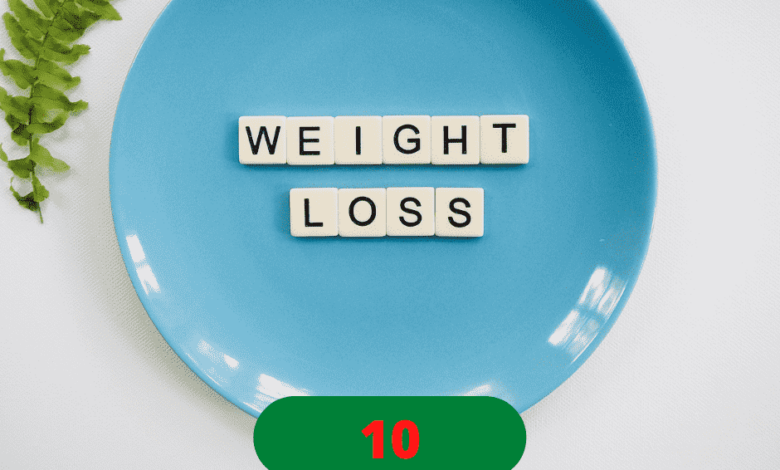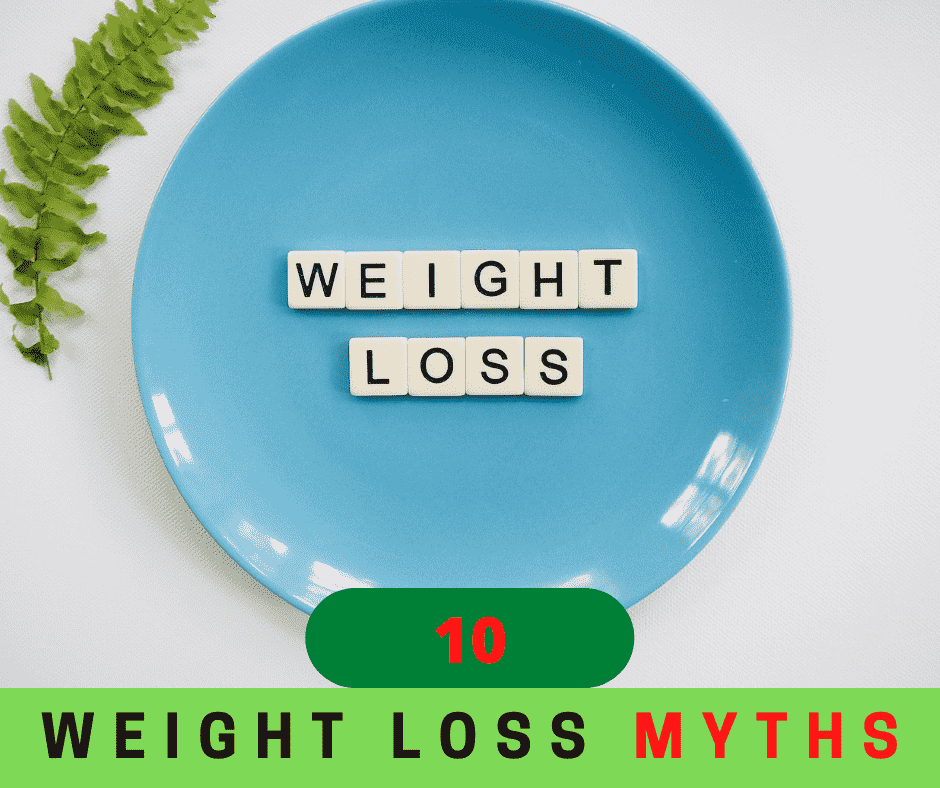
10 Weight Loss Myths You Should Stop Believing
10 Weight Loss Myths You Should Stop Believing: We all want to achieve our weight goals, but sometimes we fall prey to common misconceptions that can hinder our progress. From the idea that skipping meals speeds up weight loss to the belief that weight loss pills are a quick fix, these myths can lead to frustration and even unhealthy practices.
Let’s debunk these myths and uncover the truth about sustainable and healthy weight management.
This article aims to shed light on these pervasive misconceptions and provide evidence-based information to guide your weight loss journey. By understanding the reality behind these myths, you can make informed decisions about your health and achieve lasting results.
Weight Loss Is Only About Appearance: 10 Weight Loss Myths You Should Stop Believing

While it’s true that shedding pounds can boost your confidence and improve your physical appearance, focusing solely on aesthetics misses the bigger picture. Weight loss is about much more than just looking good; it’s about improving your overall health and well-being.
Health Benefits of a Healthy Weight
Maintaining a healthy weight significantly reduces your risk of developing a wide range of chronic diseases. These benefits extend beyond physical health and positively impact your mental and emotional well-being.
- Reduced Risk of Heart Disease:Excess weight strains your heart, increasing your risk of heart attacks, strokes, and other cardiovascular problems. Losing even a small amount of weight can significantly reduce this risk.
- Improved Blood Sugar Control:Obesity is a major risk factor for type 2 diabetes. Weight loss can help improve insulin sensitivity, allowing your body to use glucose more effectively and reducing your risk of developing diabetes.
- Lower Blood Pressure:High blood pressure is another significant health concern associated with obesity. Losing weight can help lower your blood pressure and reduce your risk of stroke and heart disease.
- Reduced Risk of Certain Cancers:Some cancers, such as colon, breast, and endometrial cancer, are linked to obesity. Maintaining a healthy weight can significantly lower your risk of developing these diseases.
- Improved Sleep Quality:Obesity can disrupt sleep patterns, leading to sleep apnea and other sleep disorders. Losing weight can improve sleep quality, leaving you feeling more refreshed and energized.
- Increased Energy Levels:While you might feel sluggish and tired when carrying extra weight, losing weight can boost your energy levels and improve your overall stamina.
- Improved Mood and Mental Health:Studies have shown that weight loss can improve self-esteem, reduce stress, and decrease the risk of depression.
Impact of Weight on Bodily Systems
Excess weight places a significant burden on various bodily systems, impacting their ability to function optimally.
- Cardiovascular System:Excess weight puts added strain on your heart, increasing your risk of heart disease, high blood pressure, and stroke. The extra weight also makes it harder for your heart to pump blood effectively.
- Respiratory System:Obesity can lead to breathing problems, such as sleep apnea and shortness of breath. It can also increase your risk of asthma and other respiratory conditions.
- Musculoskeletal System:Carrying extra weight puts stress on your joints, increasing your risk of arthritis and other musculoskeletal problems. It can also make it difficult to move around and participate in physical activities.
- Endocrine System:Obesity can disrupt hormone production and function, increasing your risk of diabetes, infertility, and other endocrine disorders.
- Digestive System:Excess weight can contribute to digestive problems, such as heartburn, acid reflux, and gallstones. It can also increase your risk of developing liver disease.
Focus on Overall Well-being, 10 weight loss myths you should stop believing
While achieving a healthy weight can have a positive impact on your appearance, it’s essential to remember that it’s just one aspect of your overall well-being.
- Mental and Emotional Health:Focus on building a positive self-image that goes beyond physical appearance. Engage in activities that promote mental well-being, such as meditation, yoga, or spending time in nature.
- Physical Activity:Incorporate regular exercise into your routine, not just to lose weight, but to improve your overall fitness, strength, and endurance. Choose activities you enjoy to make it sustainable.
- Nutrition:Prioritize a balanced diet rich in fruits, vegetables, whole grains, and lean protein. Avoid processed foods, sugary drinks, and excessive amounts of unhealthy fats.
- Stress Management:Find healthy ways to manage stress, such as deep breathing exercises, spending time with loved ones, or pursuing hobbies. Chronic stress can lead to weight gain and other health problems.
Outcome Summary

Remember, sustainable weight loss is about making healthy lifestyle changes that you can maintain over time. Don’t fall victim to quick fixes or unrealistic expectations. Focus on nourishing your body, staying active, and making choices that support your overall well-being.
By debunking these myths, you can embark on a journey toward a healthier and happier you.
Tired of hearing about the latest “miracle” diet that promises rapid weight loss? It’s time to ditch those 10 weight loss myths you’ve been clinging to and focus on sustainable, healthy habits. Instead of restricting yourself with fad diets, explore 4 sustainable ways to lose weight without fad diets that focus on building a balanced lifestyle.
Remember, lasting weight loss isn’t about quick fixes, it’s about making positive changes that you can maintain for the long haul.
It’s easy to get caught up in weight loss myths, but remember, healthy weight loss is about building sustainable habits, not quick fixes. The pandemic threw many of us off our routines, and for some, that meant a change in their relationship with food.
If you’re struggling with this, check out ways covid 19 could have hurt your relationship with food and how to deal for some helpful tips. Once you’ve addressed any pandemic-related challenges, you can move forward with a clear head and a realistic approach to weight loss.
We all get caught up in the latest weight loss fads, but the truth is, there are tons of myths out there that can actually sabotage your efforts. One thing that often gets overlooked is the power of music. It’s not just about getting pumped up, but understanding what workout music says about your mindset and how it can influence your approach to fitness and weight loss.
Ultimately, focusing on sustainable lifestyle changes and debunking those weight loss myths is key to achieving your goals.






